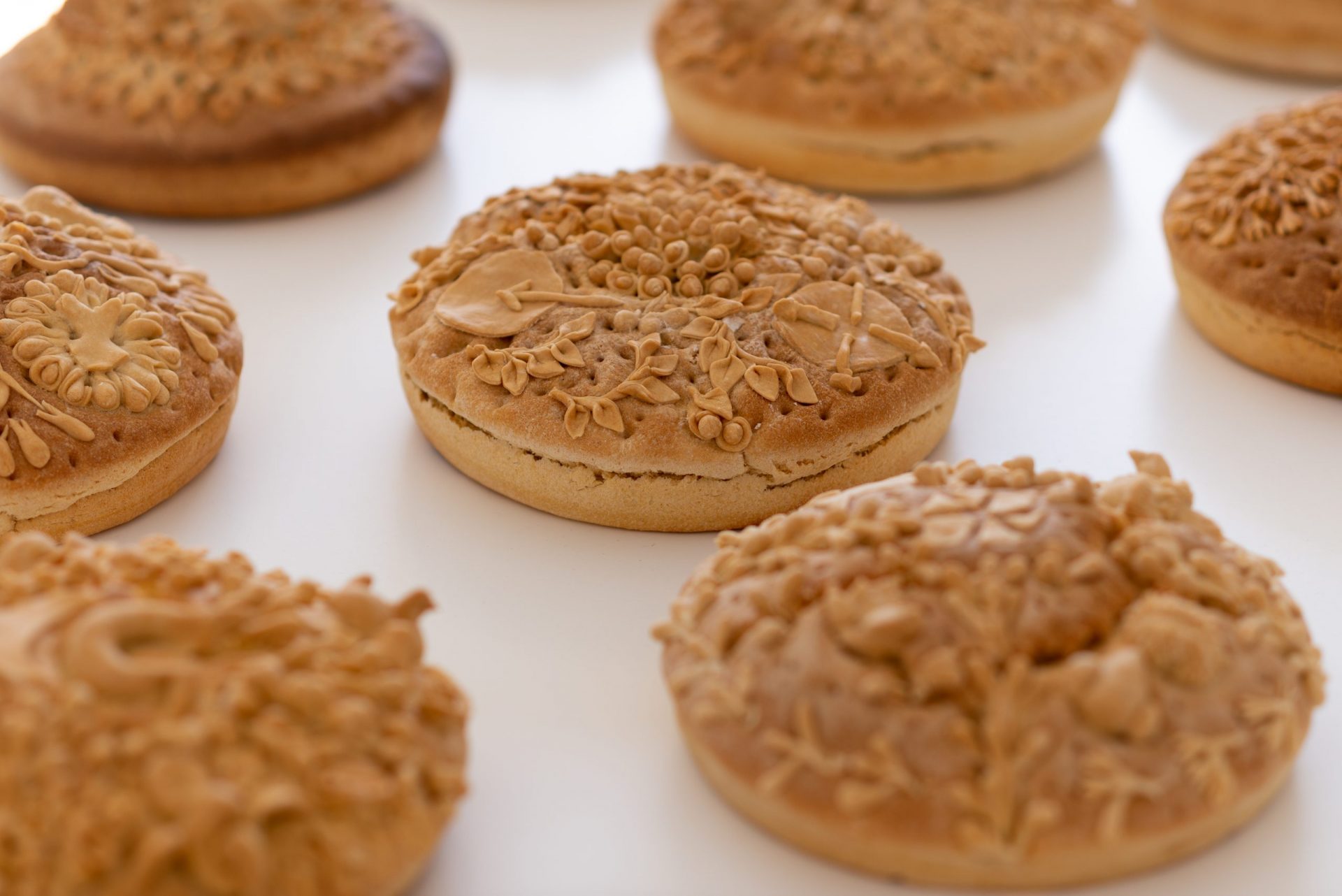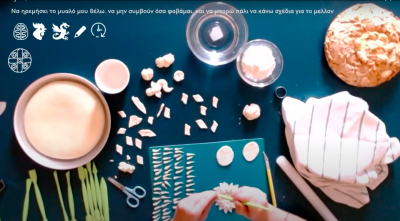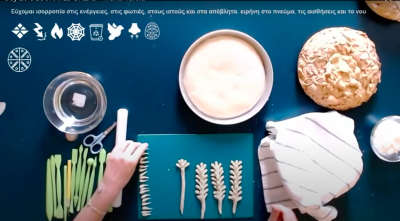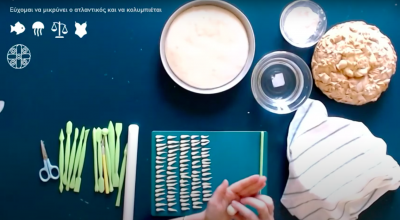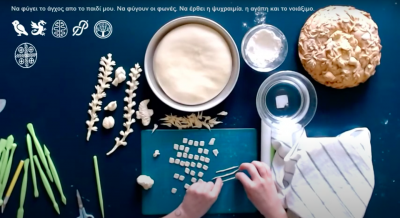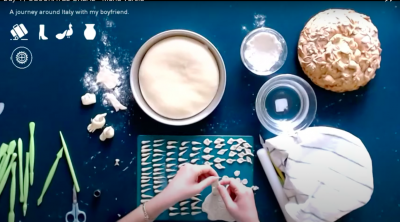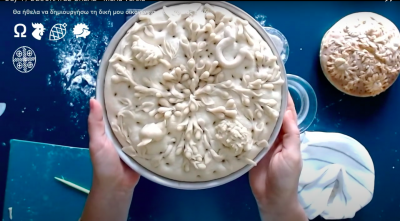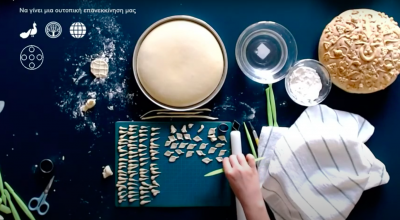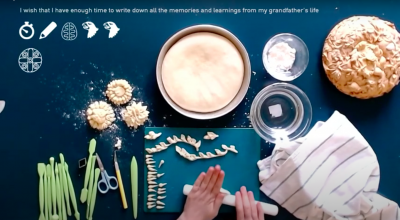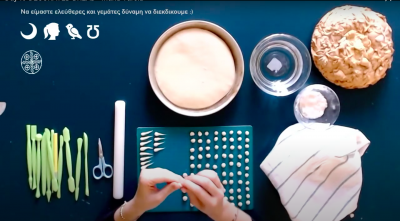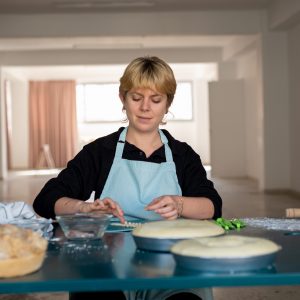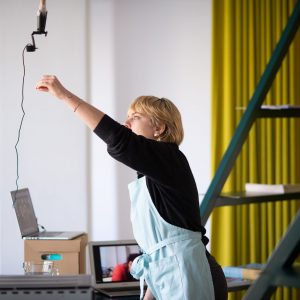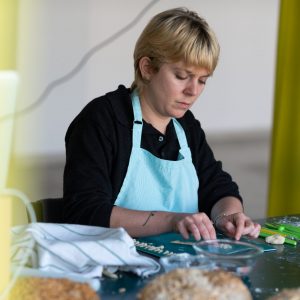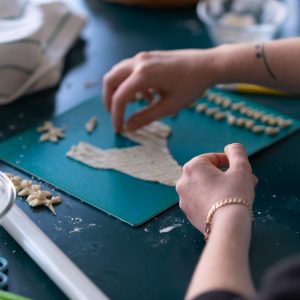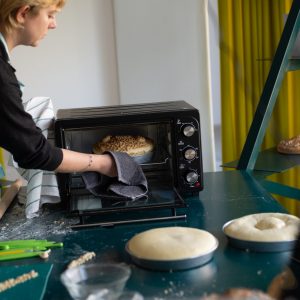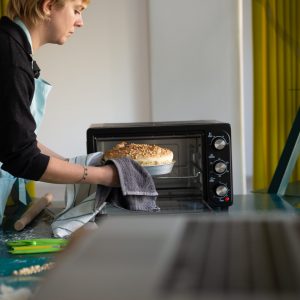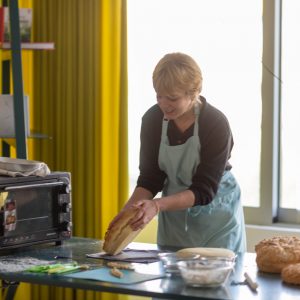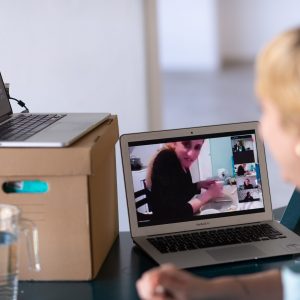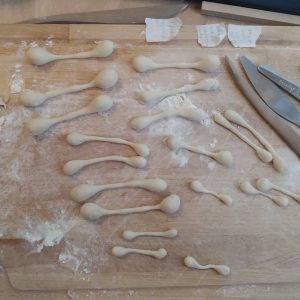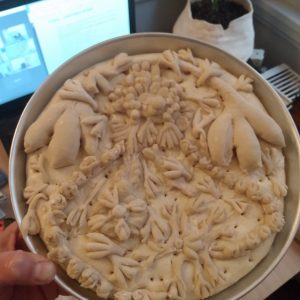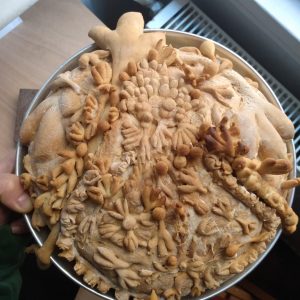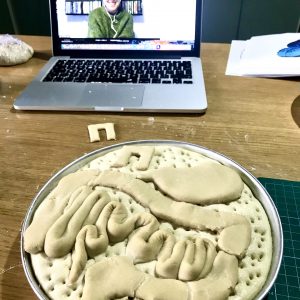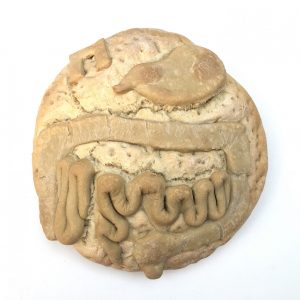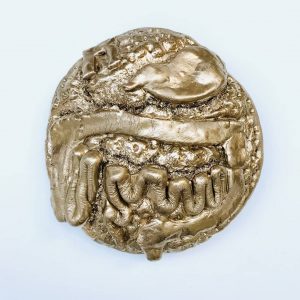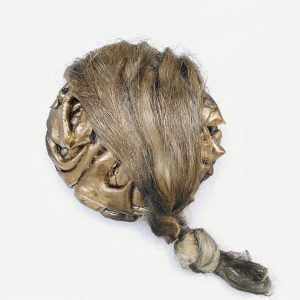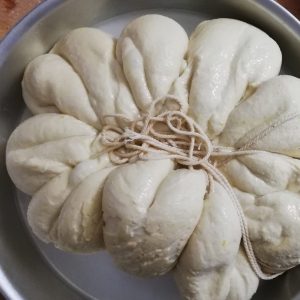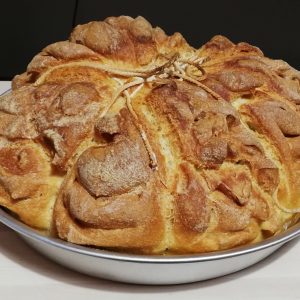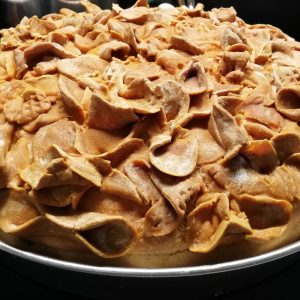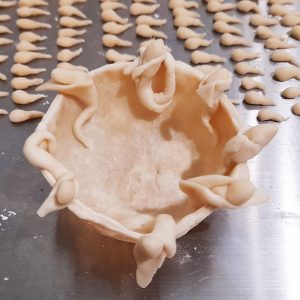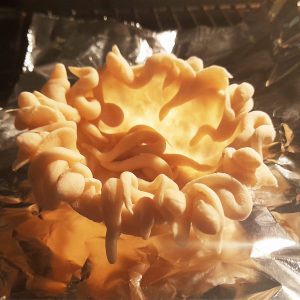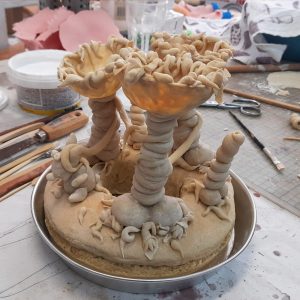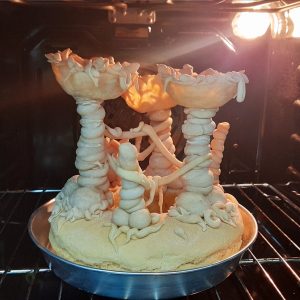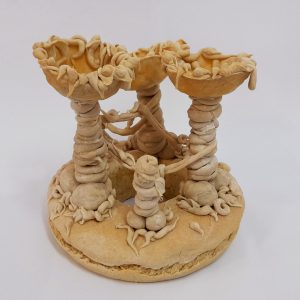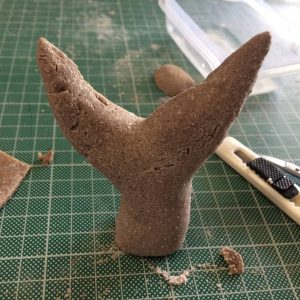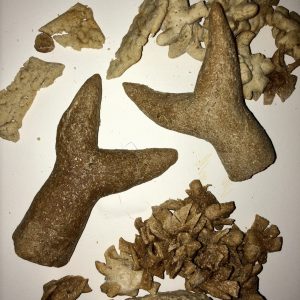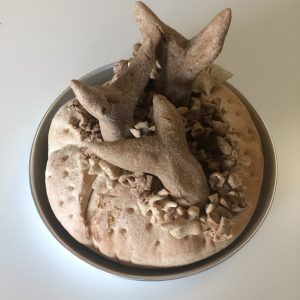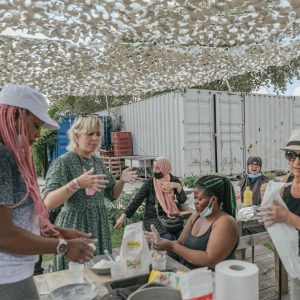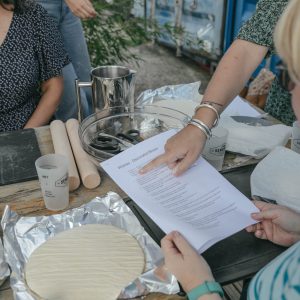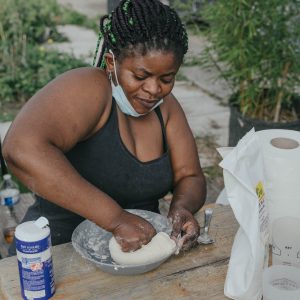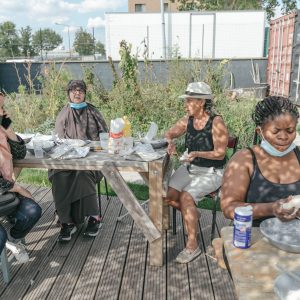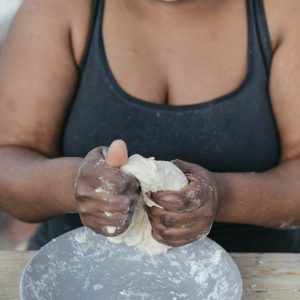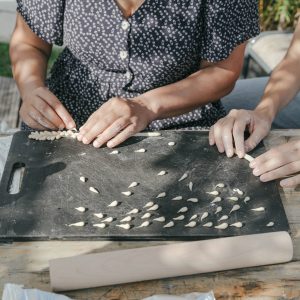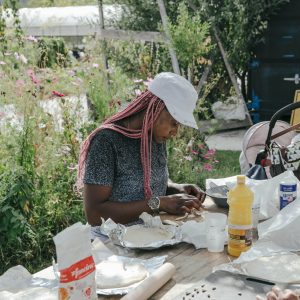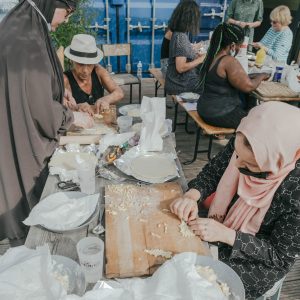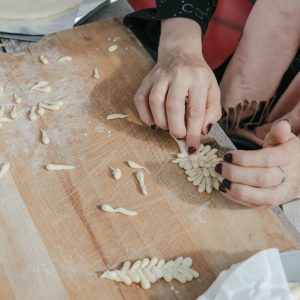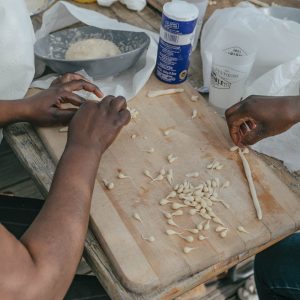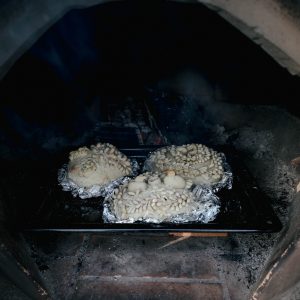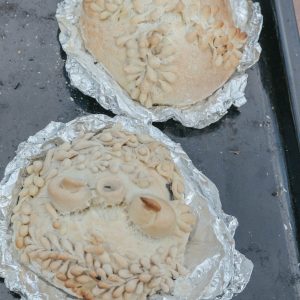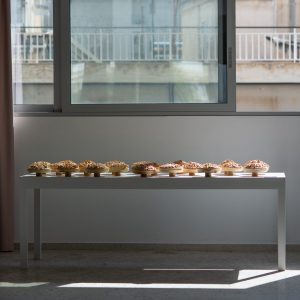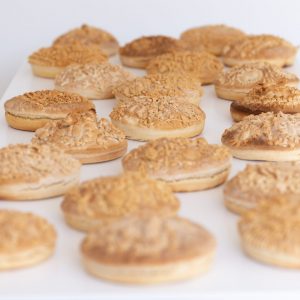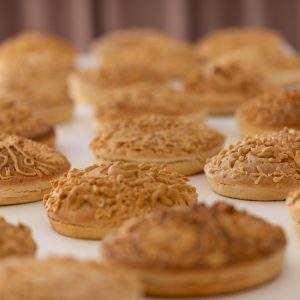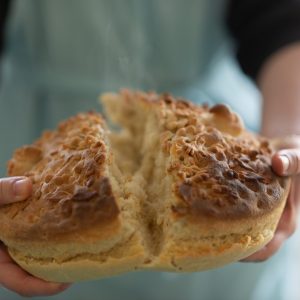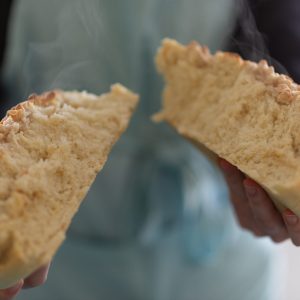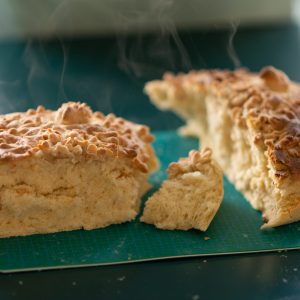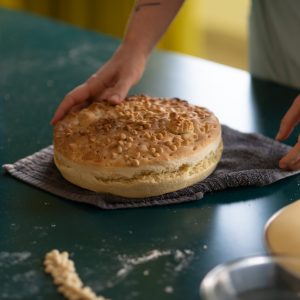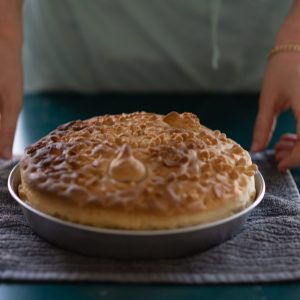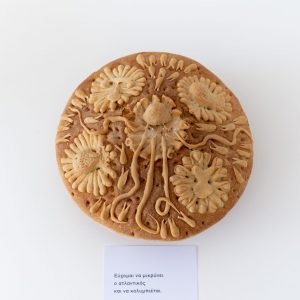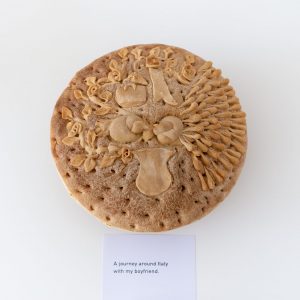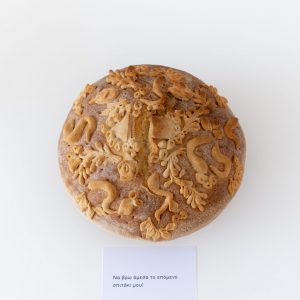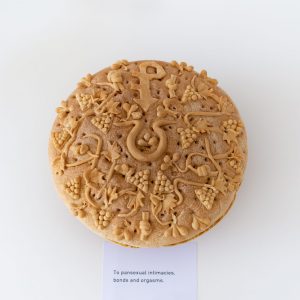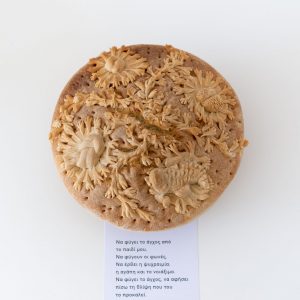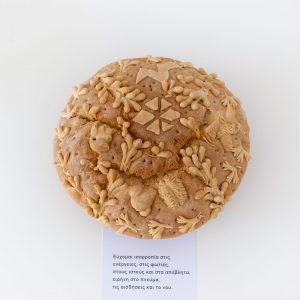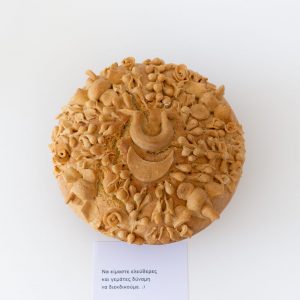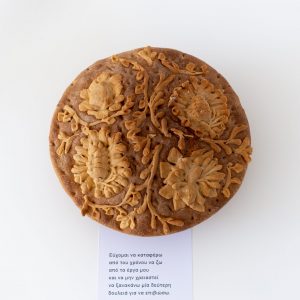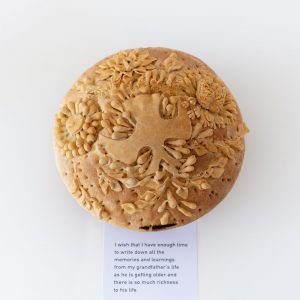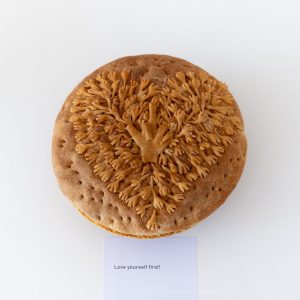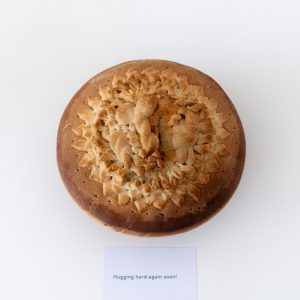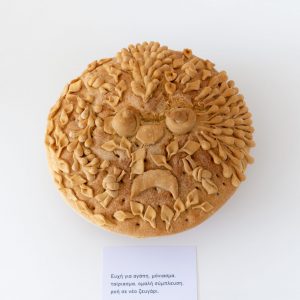Decorated Bread
Maria Varela
Decorated bread is a process based project which unfolded over a series of months researching into the ritual of decorating bread to celebrate important occasions in predominantly rural areas of Greece, rethinking these traditions within a contemporary context. Maria Varela using her methodology of transposing digital tools onto traditional skills re-evaluates inter-generational knowledge handed down woman to woman considering it a form of literacy and communication that is still relevant both as medium and message. By inviting artists and academics in collaboration with the project’s scientific advisor Despoina Catapoti to contribute knowledge (both practical and theoretical) in the form of podcasts, Varela wove together disparate strands of thinking about materiality, traditions, of connecting and reconnecting with our material and immaterial heritage.
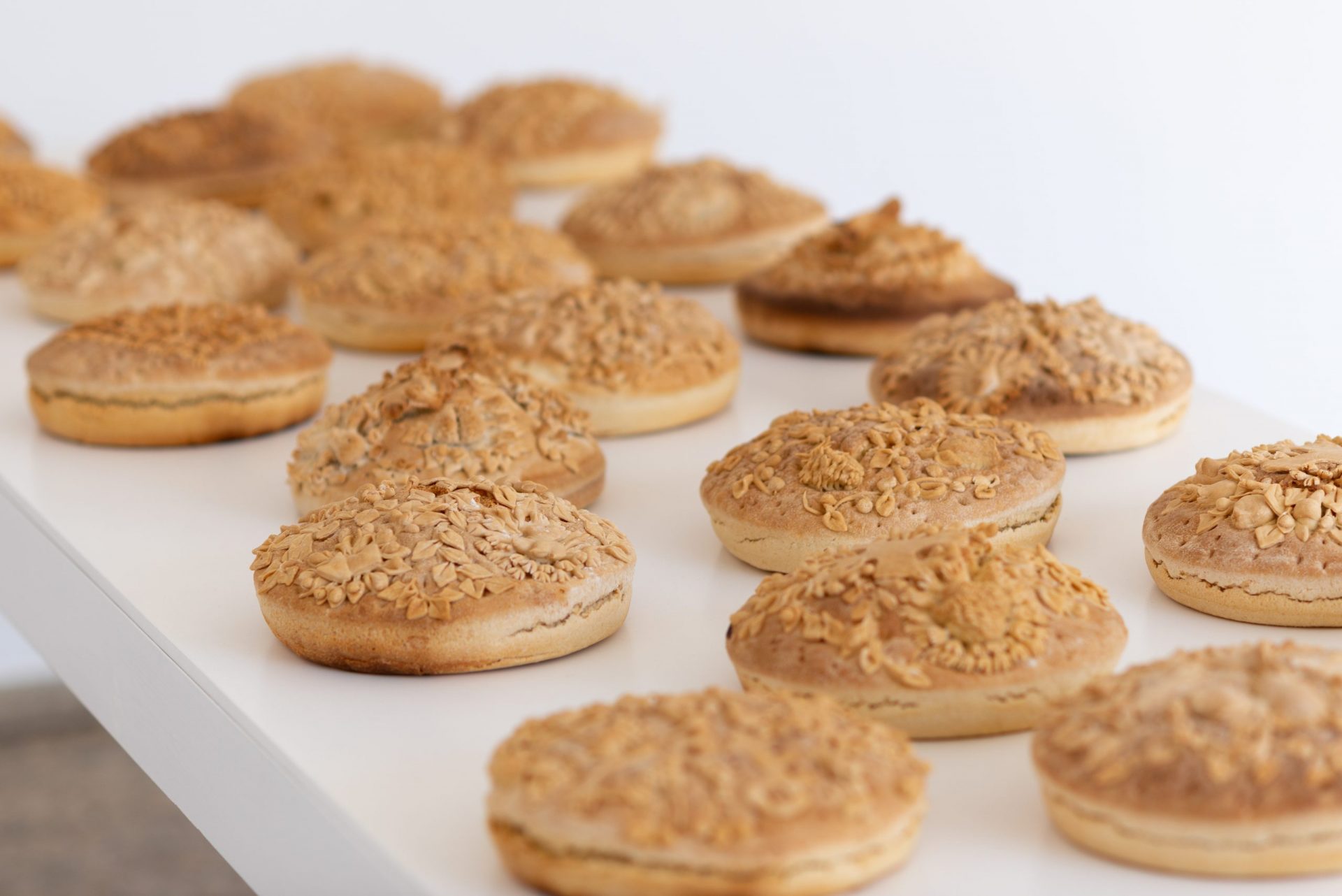
Our cultural traditions are interesting to us – exactly because they refer to something that feels close to us from narratives, stories and photographs passed on by our grandparents – the emotions they ignite are valuable and must be used to further heighten the depth of our experience.
Yiorgos Magginis
Decorated breads were traditionally used to celebrate rituals in the cycle of life (weddings, engagements, passings etc) and to mark the change of seasons (summer, harvest). Endowed with a magical / religious potential these breads were decorated with symbols inspired by daily life and nature, visualising a desire or wish by the person who created or requested the bread. Traditional symbols: snakes, flowers, leaves, pine cones, grapes, pomegranates, birds, lizards, hedgehogs, mice, scorpions, butterflies, knots, worry beads, wheels etc.
Maria Varela works with codes, languages and skills that are often rooted in traditional cultures and linked to female domestic labor. In her new work she refers back to rituals and symbols that belong to the tradition of female craft-making and decorated breads aiming to update their vocabulary and mode of production but also to experience the ritualistic patterns of their production process.
Using bread as a starting point, both as a basic food right but also endowed with symbolic potentialities, Varela re-packages the production process forming a hybrid meta-form, where producer and consumer, online and offline, interface and face-to-face, present and past, individual experience and collective labor, symbols and matter intersect.
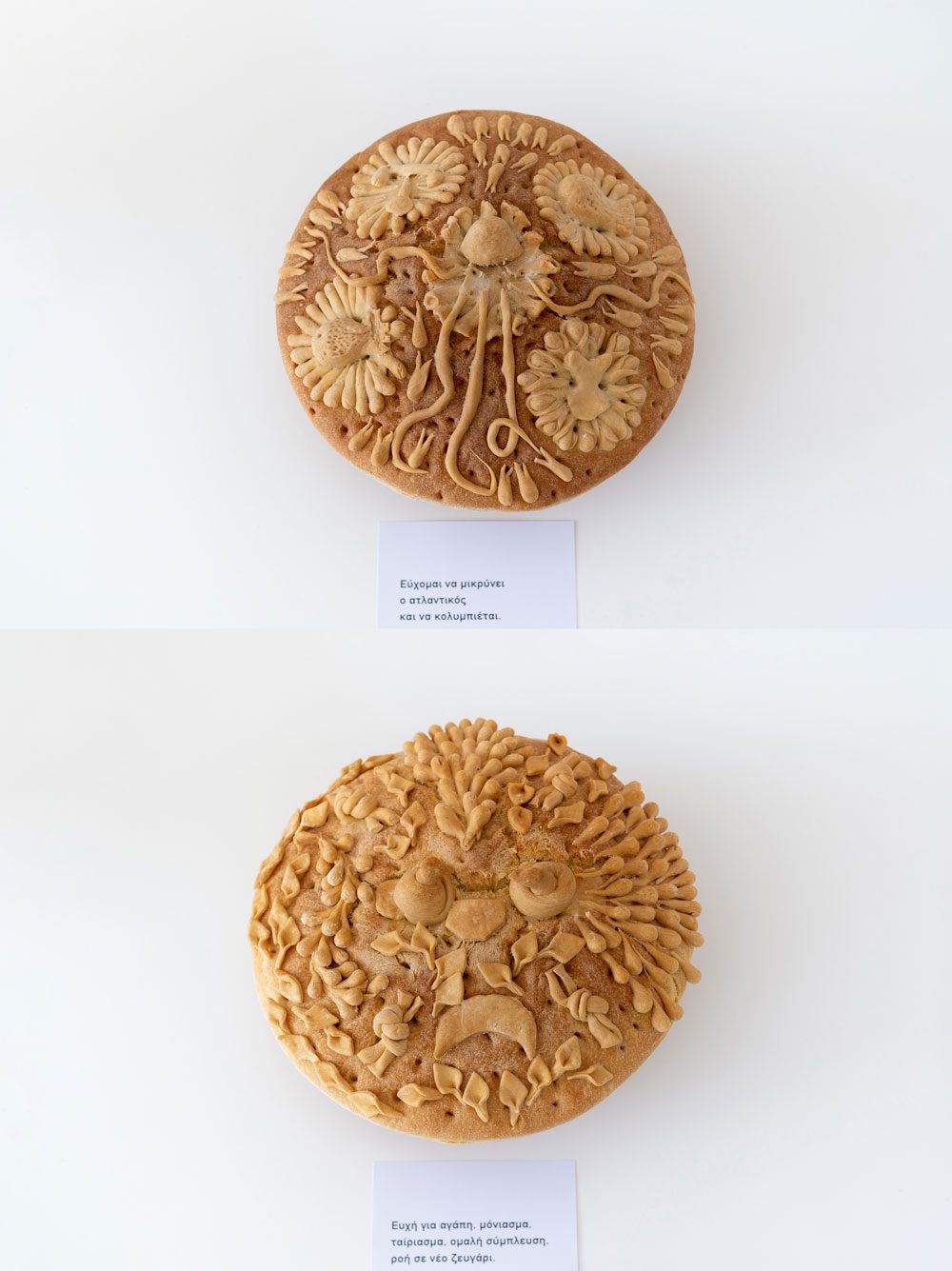
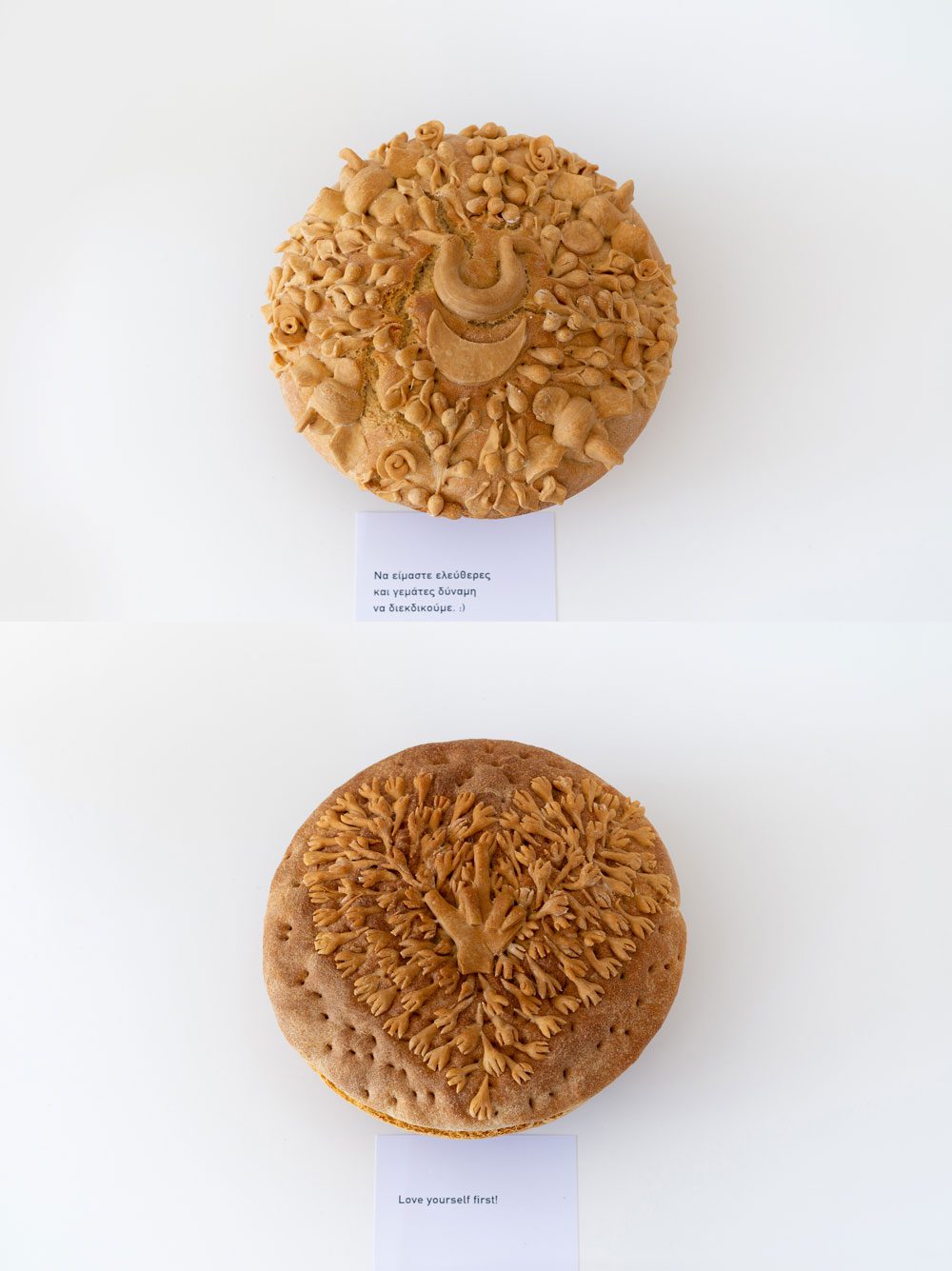
Varela created a database of symbols, where wishes / requests / orders were archived; she has also created an algorithm which selects the wishes to be materialised which in turn will be matched with the coded symbols that relate to each wish; the coded wishes were produced by Varela over seven days at TAVROS and were broadcasted live via a web performance.
The next stage of the process is the formation of a social network of women who will knead, decorate and weave their desires and fears onto bread. Some of these women are well versed in the process and its symbolic gestures, others will be new to the process, learning and experimenting on the way. The network will include academics who will contribute to the discourse from an anthropological, folk and museum studies perspective.
The social network is the artwork. The code is the artwork. The process is the artwork.
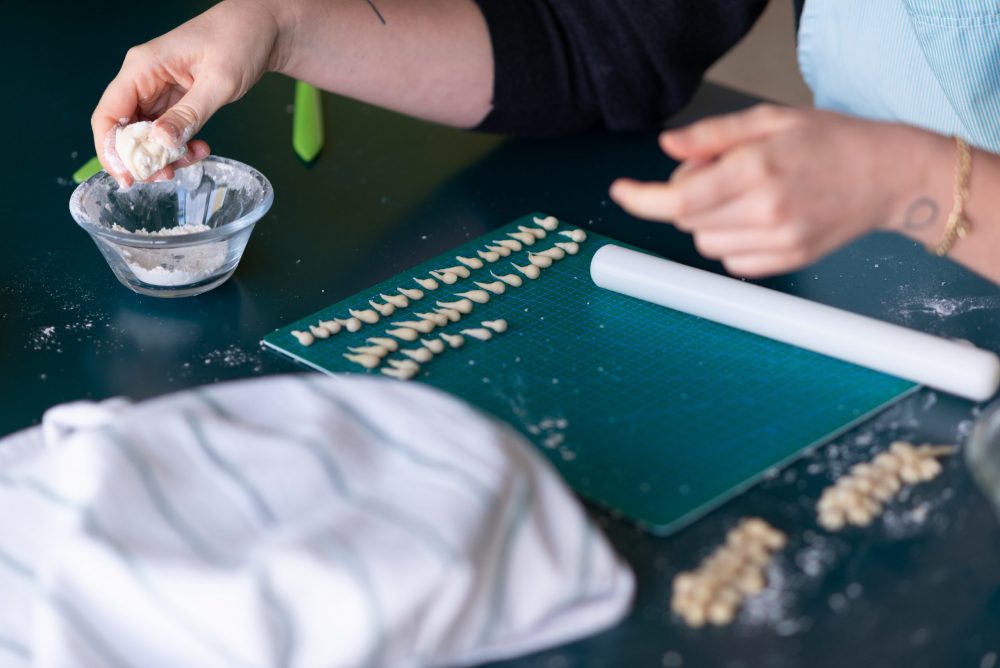
Heritage is by definition cultural because it is a second reading, an adaptation which necessarily changes in the transition from the cultural context when it was still alive and contemporary.
Yannis Drinis
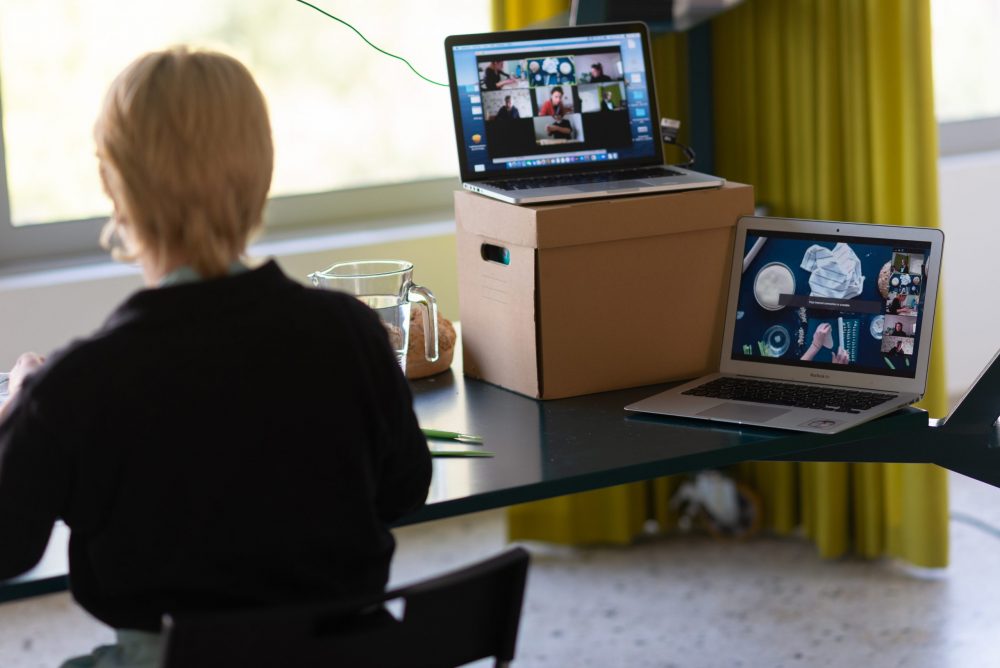
Bread is a perfect example of the combination of temporal and spatial qualities, wedding them in a harmonious marriage.
Vassiliki Kravva
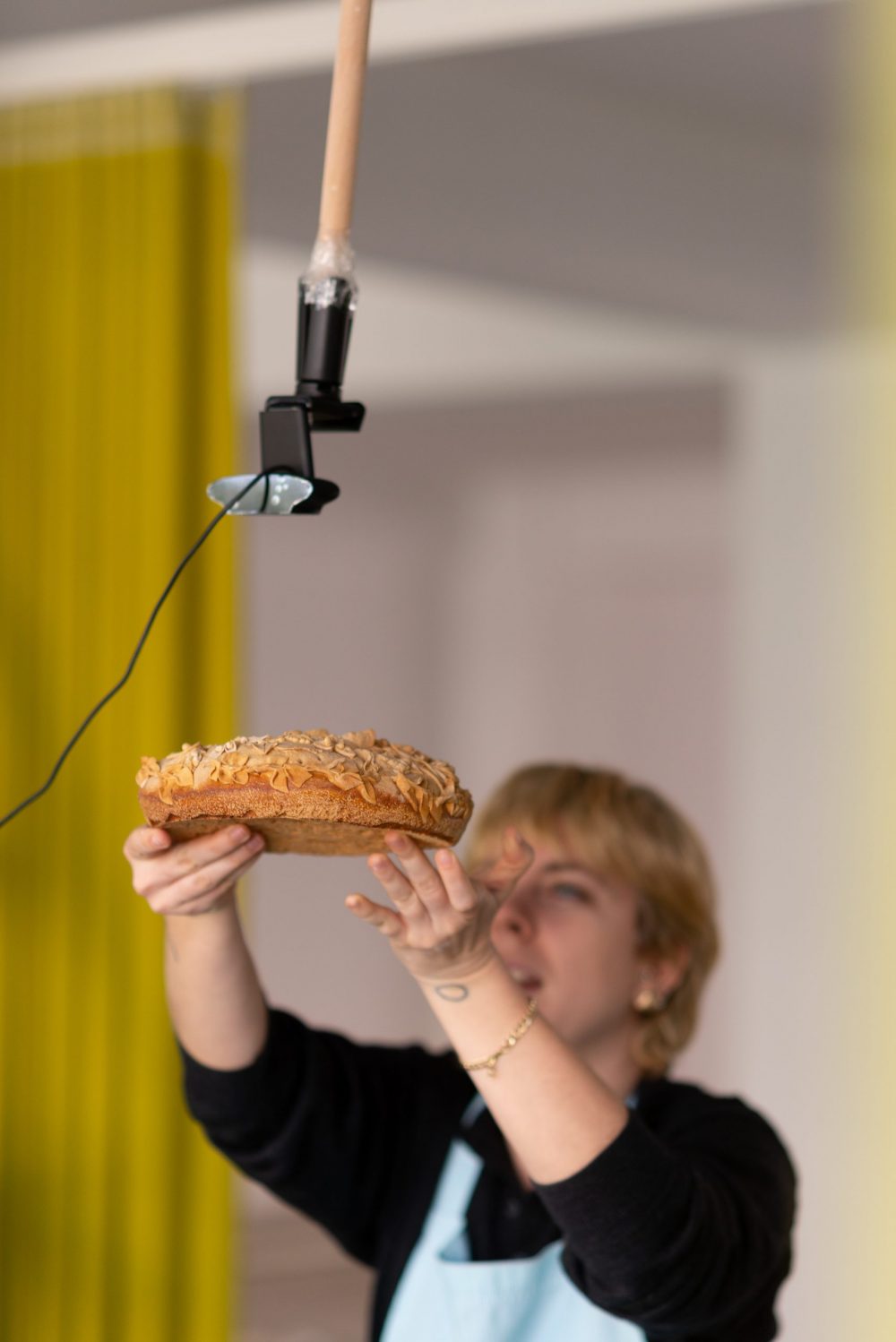
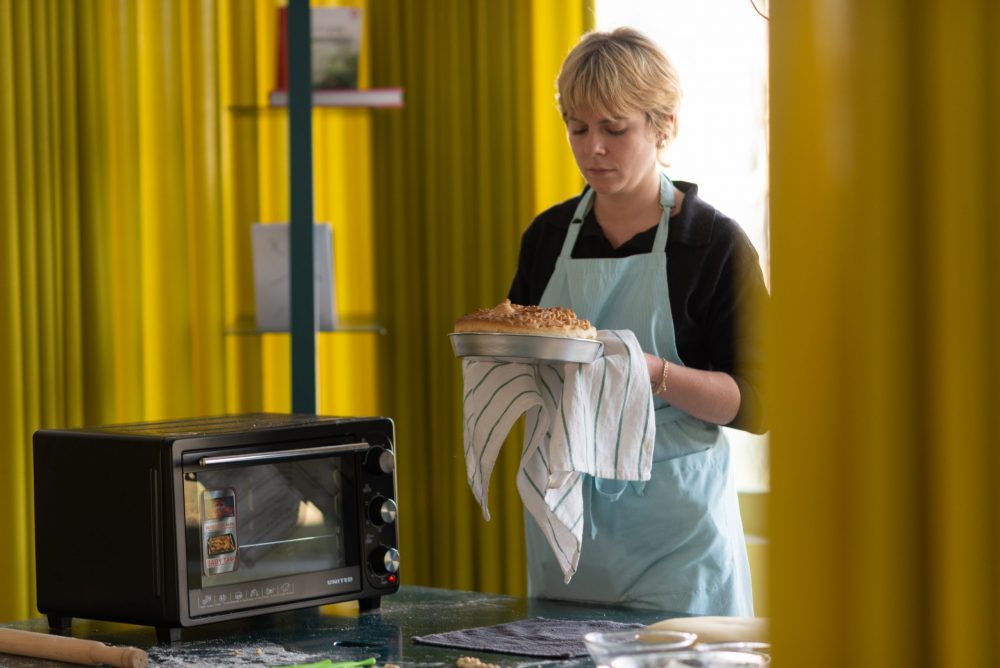
Introduction
Episode 2 - Part Α’
Episode 2 - Part Β’
Episode 3
Episode 4
Episode 5
Episode 6
Despoina Catapoti, Assistant Professor in Cultural Theory and Digital Culture at the Department of Cultural Technology and Communication at the University of the Aegean coordinated a series of online conversations dedicated to Maria Varela’s work, Decorated Bread. The contributors, apart from Maria Varela, are artists Paky Vlassopoulou, Maria Georgoula, Anastasia Douka, Malvina Panagiotidi and Stefania Strouza, and from the academic field Yannis Drinis, Vasiliki Kravva, Despoina Nazou and George Magginis.
In the first part of the online conversation artists Paky Vlassopoulou, Maria Georgoula, Anastasia Douka, Malvina Panagiotidi and Stefania Strouza, briefly present their respective sculptural practices focusing on the specifics of the materials and techniques they use. The conversation continues with them discussing further the novelty of using dough in relation to the materialities that they use in their work.
In the second part of the episode, the invited artists discuss the transferal of material knowledge as an ‘event’: how does an artist connect with the representational qualities (or performative) of the techniques needed in decorating bread? What are the implications of working on decorative techniques as part of a workshop and indeed an online one? What is worth giving attention to? What elements of the production process can be understood as familiar or foreign to their practices?
Yannis Drinis, Head of the Department of Intangible Cultural Heritage and Intercultural relations of the Hellenic Ministry of Culture and Sports attempts a definition of the terms “traditional” and “cultural heritage” moving onto issues related to the mediation between “past” and “present” and the role that epistemological language and creative practices have in this mediation, including importantly which social groups demand a role and access to the way traditions are accessed and on whose terms.
Vasiliki Kravva, Associate Professor of Social Anthropology, Department of History and Ethnology of the Democritus University of Thrace focuses on issues related to consumption and more specifically the multitude of temporal and spatial identities that surface from the process of consumption. The primary concern discussed by Kravva is that that these processes do not function as reinterpretations or mediations but instead alternate strategies of appropriation. How does an artist like Maria Varela co-opt the tradition of decorating bread? How does a collective like AIANTIS or even academic communities appropriate traditional knowledge production?
Despoina Nazou, Social Anthropologist, post-doctoral Fellow of the University of Crete continued Vasiliki Kravva’s inquiries, by investigating the trajectory of decorated bread as adopted by the tourist industry. How does the change of context alter the reception andunderstanding of these breads? Do we need to reconsider the role of the local community and women via these production processes? How do notions of authenticity, tradition and local as well as hyperlocal in contact zones such as the island of Mykonos function? What other spatio-temporalities as well as identities are formed by these practices?
George Magginis, Academic Director of the Benaki Museum focuses on the process of mediation: do academics, artists, and indeed museums function as mediators between the past and present? Do they channel these traditions directly or alter them on the way? What about the Benaki Museum and the folk art it showcases? What was the initial vision of the founders of the museum and what was its agenda? How does the contemporary contextualization of their collection of folk art and traditions function?
Decorated breads didn’t have commercial value, they were made by specific persons and were consumed in specific contexts. Nowadays, this has changed, they are produced in a monetized economy, taking on a symbolic value on top of the value of the materials with which they were produced. Meanwhile the people who produce them and the way they are produced has changed.
Despoina Nazou
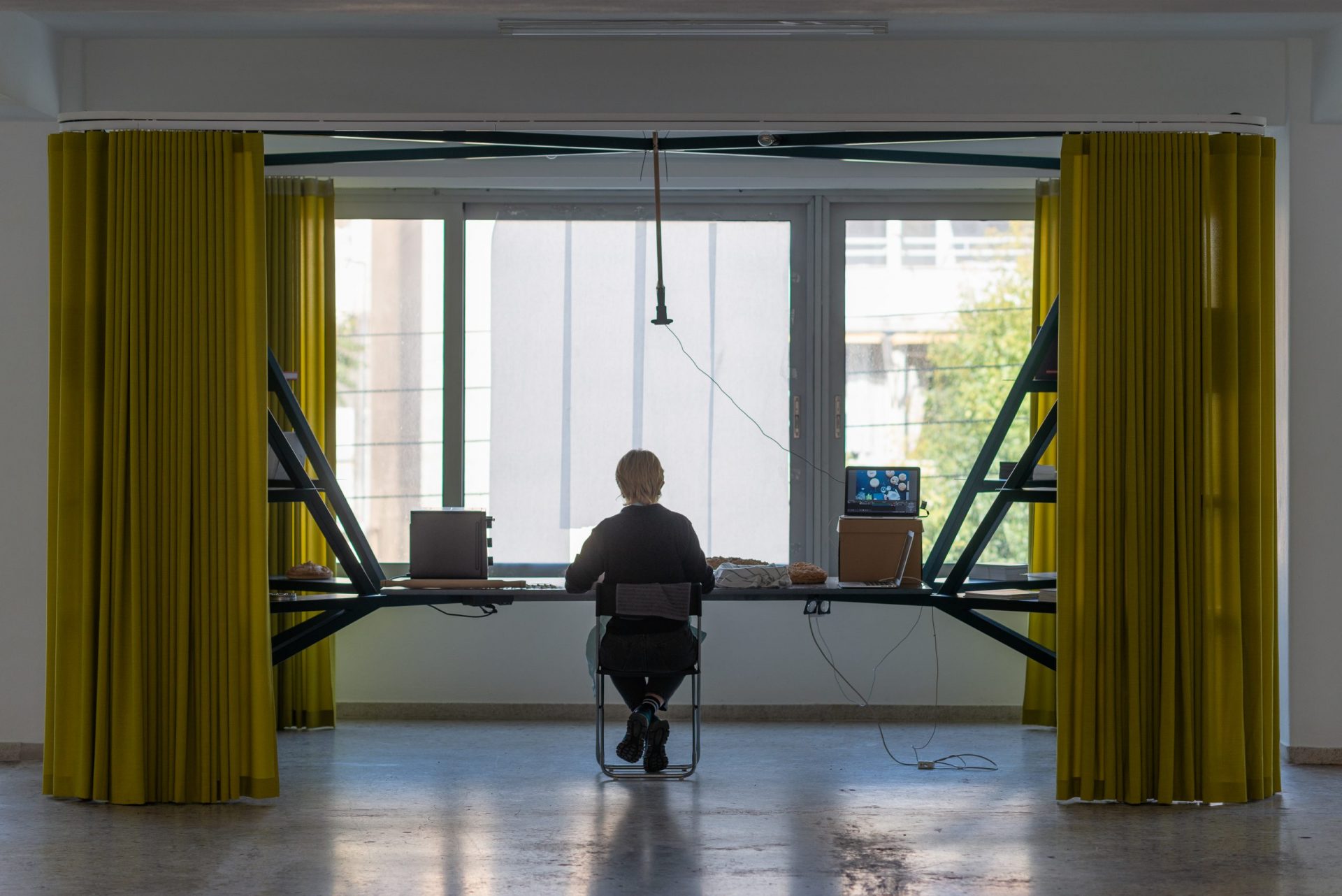
The Ritual
Self-work
1. research into symbols / reading material, online sources
2. contact with the women cooperative AIANTIS with experience in decorating bread
3. learning to decorate bread, masterclasses with Mrs Aggeliki (4x classes) @TAVROS
Collective collaboration
4. open call to collect wishes & database archiving & symbols coding
5. web performance by Maria Varela
6. online workshop: Aiantis cooperative – five female artists
7. bread assignments to artists
8. podcasts with the participation of academics and artists / moderator Despina Catapoti
Presentation
9. publication of breads created by the artists, podcasts, web performance documantation videos & webpage
10. web masterclass Decorated Bread @ Circular Cultures: Materials, British Council Greece
11. workshop Decorated Bread @ T&T Festival #2 – Zone Sensible , Paris – France
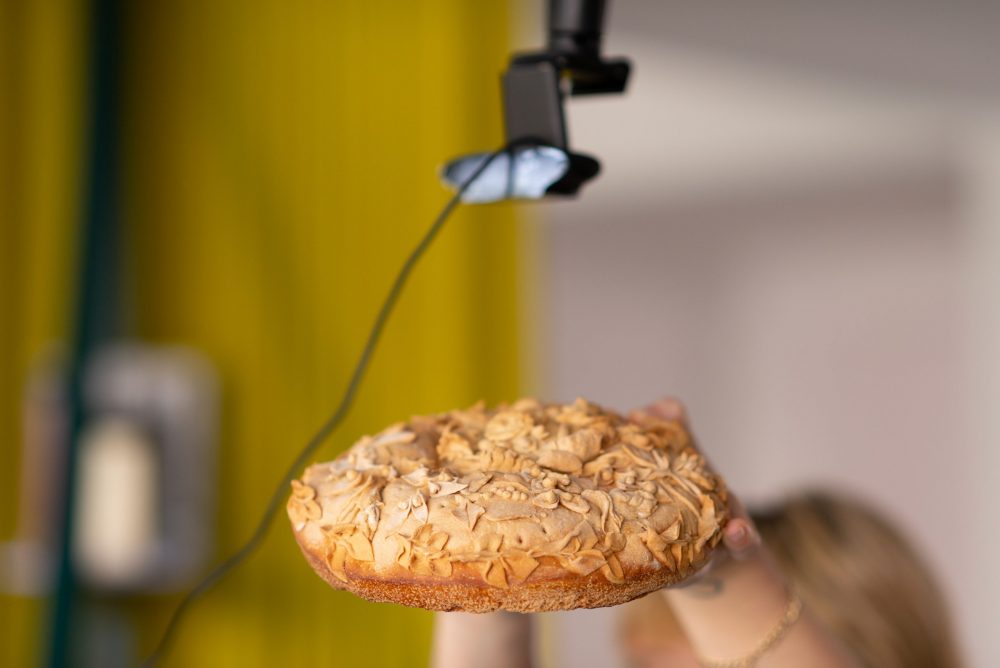
Participants:
Maria Varela, Artist
Olga Hatzidaki, Curator
Aggeliki Kavakaki, Director of the Female Agricultural Collective Aiantis
Paki Vlassopoulou, Artist
Maria Georgoula, Artist
Anastasia Douka, Artist
Malvina Panagiotidi, Artist
Stefania Strouza, Artist
Despina Catapoti, Assistant Professor in Cultural Theory and Digital Culture, Department of Cultural Technology and Communication, University of the Aegean
Yannis Drinis, Head of the Department of Intangible Cultural Heritage and Intercultural Relations, Hellenic Ministry of Culture and Sports
Vassiliki Kravva, Assistant Professor Social Anthropology, Department of History and Ethnology, Democritus University of Thrace
George Manginis, Academic Director, Benaki Museum
Despina Nazou, Social Anthropologist, Postdoctoral Fellow , University of Crete
Project Manager: Foteini Salvaridi
Text editing: Olga Hatzidaki
Photographer: Stathis Mamalakis
Sound Designer: Konstantinos Chaikalis
Developer: Thanos Eleftherakos
